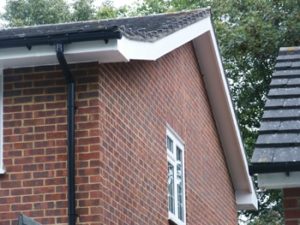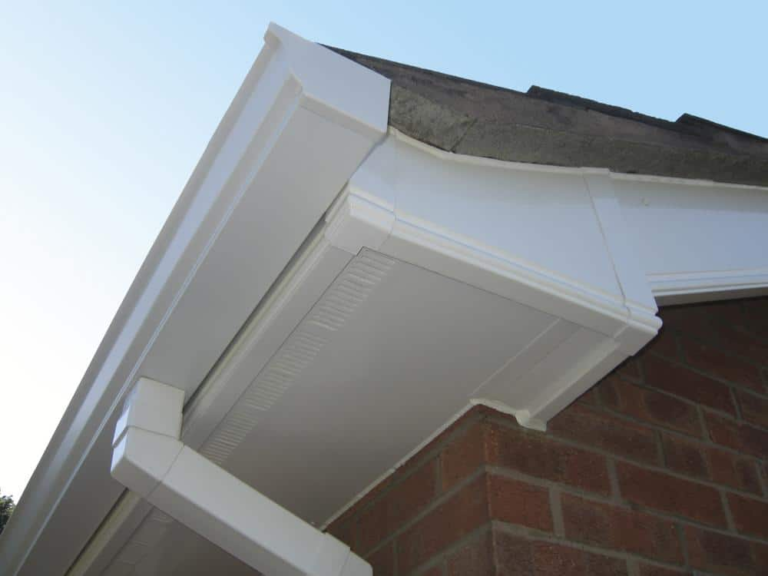
10
JulyThe 10 Most Terrifying Things About Fascia And Soffit Maintenance

Fascia and Soffit Maintenance: A Comprehensive Guide
When it comes to preserving a house, the significance of outside components like fascia and soffit can not be overemphasized. These parts not only add to the aesthetic appeal of a residential or commercial property but likewise serve vital functions in terms of ventilation, wetness control, and structural integrity. This short article explores fascia and soffit maintenance, covering their definitions, functions, typical problems, and effective maintenance practices to ensure their longevity and efficiency.

Understanding Fascia and Soffit
Fascia is the vertical board that runs along the edge of the roofing system, generally where the roofing system eaves extend. It holds the gutter system in location and is typically painted to match or emphasize the exterior of the home.
Soffit, on the other hand, is the horizontal board that connects the fascia to the home's exterior wall. Soffits are typically vented to permit airflow into the attic space, promoting ventilation and avoiding heat and moisture accumulation.
Functions of Fascia and Soffit
The primary functions of fascia and soffit include:
- Protection: They shield the attic and roofing structure from the elements, including rain, snow, and bugs.
- Ventilation: The vented soffit enables appropriate air flow, which helps to prevent mold and condensation in the attic.
- Visual Appeal: Both fascia and soffit add to the general curb appeal of a home, improving its visual interest.
Common Issues with Fascia and Soffit
Like any part of a home, fascia and soffit can deal with a series of issues that may compromise their efficiency. Typical issues include:
- Rotting: Moisture and humidity can cause wood rot in both fascia and soffit, deteriorating their structural stability.
- Bug Infestation: Insects, like bees, wasps, and termites, might nest in these locations if left unchecked.
- Peeling Paint: As weather and time take their toll, paint can start to peel, detracting from the home's look and permitting for further moisture seepage.
- Gutter Issues: Poorly set up or kept gutters can overflow, leading to water damage and soil erosion around fascia and soffit.
- Vent Blockages: Dust, particles, and nesting products can impede air flow from soffit vents, causing improper ventilation in the attic.
Maintenance Tips for Fascia and Soffit
Regular maintenance is essential for ensuring fascia and soffit stay functional and appealing. Here are some vital maintenance actions:
1. Routine Inspections
Conduct regular examinations, especially after serious weather condition, to inspect for signs of damage or wear. Try to find:
- Cracks or splits in the fascia
- Signs of rot or mold
- Loose or drooping areas
- Pest activity
2. Clean Gutters and Downspouts
Clogged up gutters can result in water pooling, which increases the threat of decomposing fascia and soffit. Guarantee rain gutters and downspouts are devoid of debris and working successfully:
- Remove leaves, twigs, and dirt
- Flush with water to inspect drain
- Clear any obstructions
3. Painting and Finishing
If fascia and soffit are wood, painting or staining them can improve their resistance to moisture and pests:
- Choose long lasting, weather-resistant paint or stain
- Repaint every few years as needed
- Repair any peeling before repainting to make sure adhesion
4. Make Sure Proper Ventilation
To prevent wetness accumulation in the attic, guarantee that soffit vents stay clear:
- Remove any obstructions brought on by particles or bugs
- Clear exterior soffit holes to allow proper air flow
5. Replace Damaged Materials
If any fascia or soffit boards show significant damage or rot, change them immediately to prevent further issues:
- Use rot-resistant materials like PVC or aluminum
- Speak with a professional for substantial damage
6. Professional Inspection and Repairs
For any major issues, such as insect problems or serious structural problems, employ a professional for a thorough maintenance:
- Schedule a yearly professional examination
- Address issues promptly to avoid pricey repairs later on
Table: Maintenance Checklist for Fascia and Soffit
| Maintenance Task | Frequency | Notes |
|---|---|---|
| Visual Inspection | Month-to-month | Try to find damage, rot, and pest activity |
| Clean Gutters | Bi-annually | Ensure effective water drainage |
| Paint/Stain | Every 3-5 years | Usage weather-resistant products |
| Clear Soffit Vents | Every year | Prevent air flow obstructions |
| Replace Damaged Sections | As needed | Usage rot-resistant materials |
| Professional Inspection | Yearly | Consult an expert for major issues |
FAQs About Fascia and Soffit Maintenance
Q: How typically must I inspect my fascia and soffit?A: It is recommended
to inspect these functions monthly, especially after harsh weather conditions. Q: Can I paint fascia and soffit myself?A: Yes, many house owners select to do this themselves. However, guarantee you follow proper safety procedures and choose weather-resistant paint for enduring results. Q: What must I do if I discover rot on my fascia?A: If the damage is minimal, you may be able to
repair it with wood filler or epoxy. For extensive damage, changing the affected section is suggested. Q: How does bad ventilation affect my attic?A: Poor ventilation can cause moisture buildup, which can cause mold development, structural damage,and increased energy expenses due to ineffective heating & cooling. Q: Are there any products that are much better matched for fascia and soffit?A: Yes, vinyl, aluminum, and dealt with wood are popular options due to their toughness and resistance to
rot and bugs. Preserving fascia and soffit is important for maintaining the integrity, security, and aesthetic appeal of a home. Regular evaluations, cleansing, painting, making sure appropriate ventilation,
and professional interventions when required can considerably extend the life of these essential elements. Homeowners ought to remain proactive in their maintenance efforts to avoid pricey repairs and guarantee their homes stay safeguarded from the aspects.


Reviews